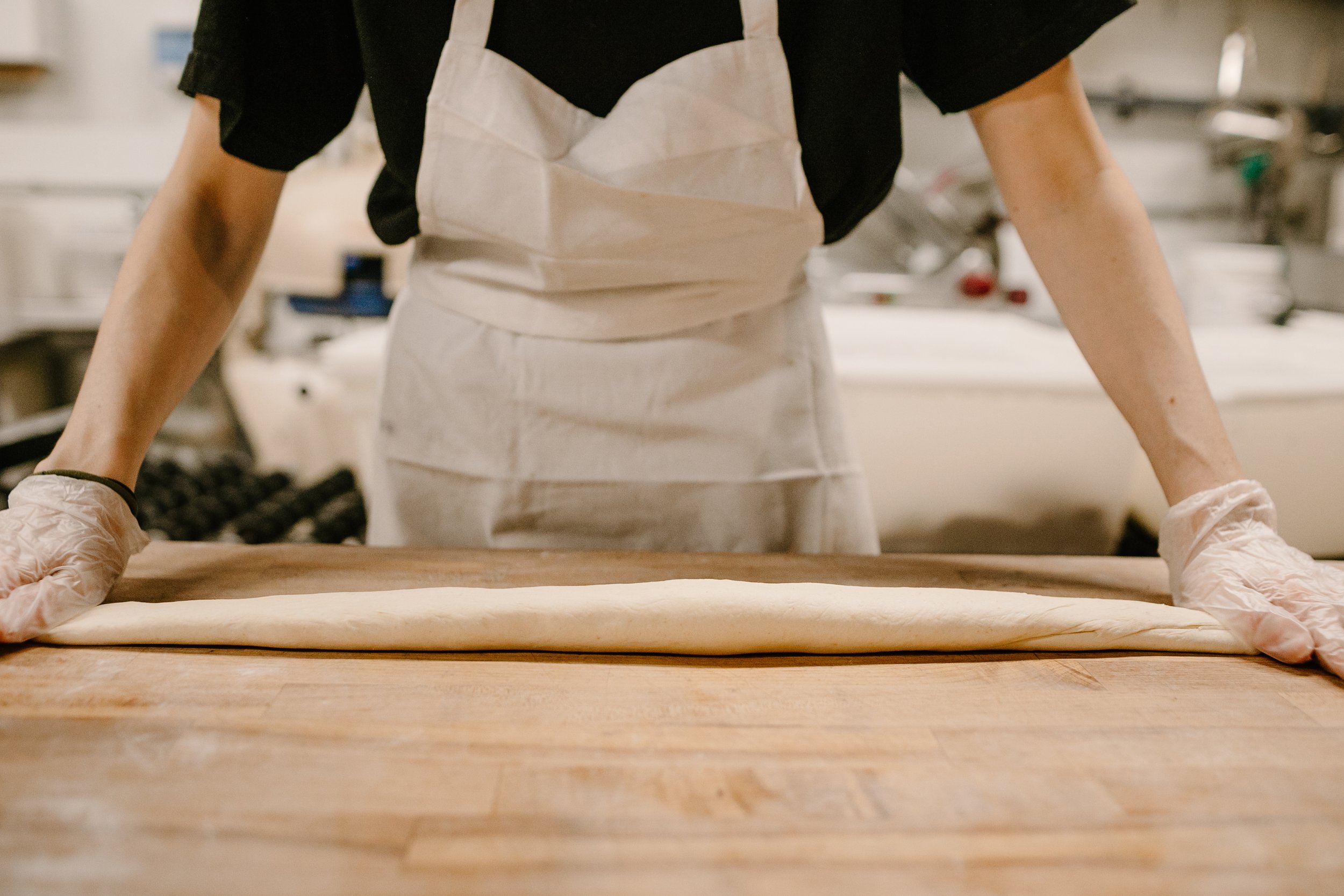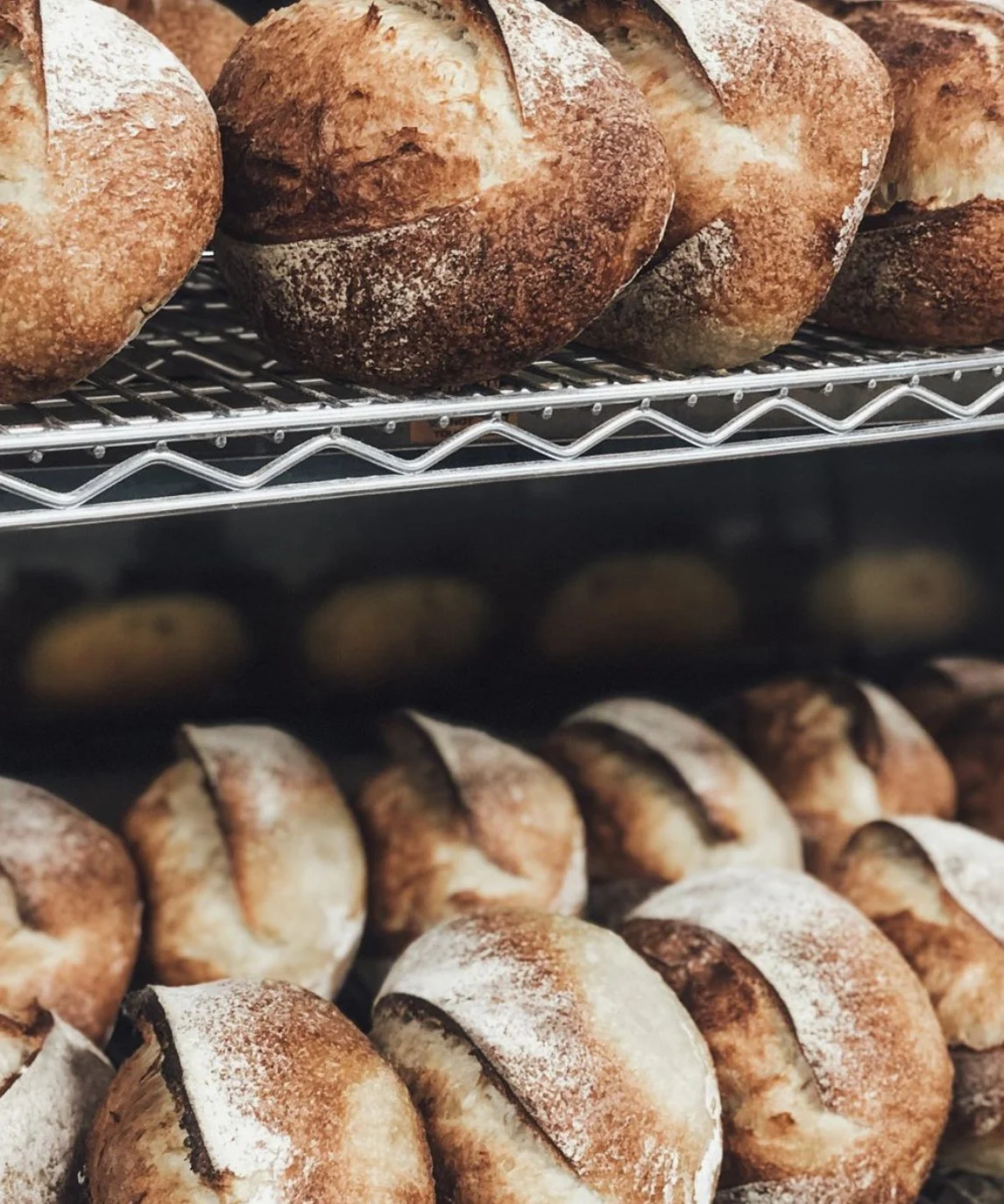Not All Bread Is Created Equal
Why Sourdough is so much better for you (and Why it’s hard to find the real thing.
Let’s be honest—bread gets a bad rap. In today’s world of gluten-free this and carb-free that, it’s easy to think bread is the enemy. But not all bread is created equal. Real sourdough? That’s a whole different story.
So what makes it so special? And why is it so hard to find the real stuff? Let’s break it down.
First, What Is Sourdough?
Sourdough is bread made the old-school way. No added yeast. No artificial ingredients. Just three simple things: flour, water, and salt—fermented over time with a natural starter full of wild yeast and good bacteria.
This long fermentation process breaks down the gluten and starches in the flour, making the bread easier to digest and better for your body. It also creates that signature tang, chewy crust, and complex flavour we all love.
The Science-y Stuff (Don’t Worry, It’s Cool)
During the fermentation process, the wild yeast and lactobacilli in the starter go to work.
Here’s what they do:
Break down gluten — making it easier on your gut
Lower the glycemic index — your blood sugar doesn’t spike as much
Increase nutrient absorption — the phytic acid in wheat gets neutralized, so your body can actually access the minerals
Support gut health — thanks to the presence of natural acids and prebiotics
Basically, sourdough is what bread used to be before things got commercial, rushed, and stripped of all the good stuff.
So What’s Up With Store-Bought Bread?
Most store-bought “sourdough” isn’t sourdough at all. Even if the label says “sourdough,” it’s often made with commercial yeast, zero fermentation time, and maybe a splash of vinegar or “sourdough flavouring” to fake it.
Why? Because real sourdough takes time—like, 48 hours from start to finish. Big manufacturers don’t have time for that. So they cut corners, speed things up, and mass-produce loaves that look the part but don’t have the health benefits (or flavour) of the real thing.
The Myths (And Why They’re Wrong)
“All bread is bad for you.”
Not true. Real sourdough has been around for thousands of years. It’s bread the way nature intended. If you’ve had trouble digesting regular bread, sourdough might be a game-changer.
“Gluten-free is always healthier.”
Not necessarily. Unless you have celiac disease or a serious intolerance, fermented wheat (like in sourdough) is often more digestible than ultra-processed gluten-free options full of starches and gums.
“It’s just bread, it can’t be that different.”
Once you’ve had real sourdough, you’ll get it. It’s not just different—it’s better in every way.
Why You Can’t Find the Real Thing Everywhere
Authentic sourdough is hard to find because it’s hard to make at scale. It takes time, attention, and serious know-how. You can’t fake fermentation. And you definitely can’t rush it.
At Homestead, we don’t cut corners. We use wild starters we’ve cared for over years, flours from Ontario (like K2 Milling), and time. Lots of time. Our dough ferments slowly over two full days before it's baked—just like it should be.
So next time you bite into one of our sourdough loaves, know this:
You're not just eating bread. You're eating something that’s better for your body, better for your gut, and better for your soul.






Ready to taste the difference?
You can find our long-ferment sourdough breads daily at the bakery, or give us a call to pre-order your favourite loaf. Trust us—once you try the real thing, there’s no going back.
